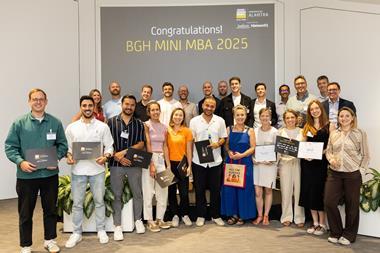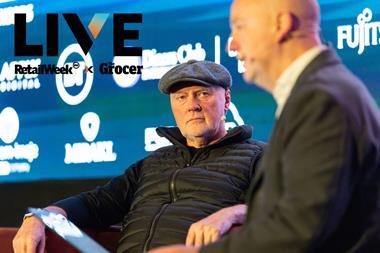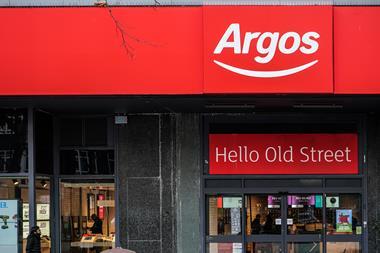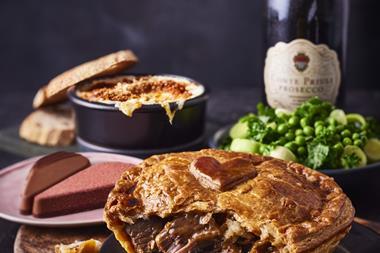UK supermarkets have been loudly appreciative of direct sourcing, claiming it helps forge closer, longer-term relationships with their supply bases.
But what do suppliers make of the direct route?
Leaner supply chains, better quality control, lower costs - the arguments for retailers cutting out the middlemen and sourcing direct from foreign producers look increasingly attractive.
Asda and Tesco seem particular fans through their International Produce Limited and Group Food Sourcing supply divisions. As well as reducing the cost of goods by about 10%, “sourcing direct means we have an intimate understanding of the costs involved in getting a product onto Asda shelves,” says Mike Newton, head of IPL’s South Africa hub. “We can allow farmers to be farmers and get on with what they’re good at, and then we take over from the farm or the port.”
And while Tesco is less keen on the term “direct sourcing” to describe its GFS division, the retailer’s category technical manager for South Africa, Sandy Norman, is equally enthusiastic about direct contact with suppliers. “A key element to having strong, long-term relationships is to have people on the ground in the source countries you’re buying from,” he says.
Other retailers, too, have been working hard to build closer ties with their overseas suppliers - in South Africa, one of the key producing countries, Sainsbury’s recently became the latest supermarket chain to position staff on the ground to manage relationships with local growers.
But how does the direct route work in practice? What do producers make of the retailers’ direct sourcing advances? How do their businesses change when UK supermarkets get involved at source - and do they see working more closely with retailers as an opportunity, or a threat?
I’ve travelled to the valleys of the Ceres region, some two hours north of Cape Town, to talk direct sourcing with the Dutoit Group, one of South Africa’s largest fruit producers and distributors.
The family-owned company knows a thing or two about doing business with UK retailers - it exports about 22,000 tonnes of produce a year to the UK, most of which goes to its main UK customer, Asda, with some volumes also going to Tesco.
A supplier to Asda since 1997, Dutoit Group has witnessed first-hand the retailer’s switch to direct sourcing via IPL and is also supplying Tesco direct, through GFS. MD Pieter du Toit says there are clear benefits to dealing with retailers direct rather than through an intermediary. Most importantly, companies like his receive information about how a category is performing back in the UK straight from the horse’s mouth.
“That means you can take joint responsibility with the retailer for growing the category,” he says. “A supermarket will come around and discuss pricing strategy and fruit quality, and we then plan a proper marketing strategy together with that supermarket.”
Direct sourcing can also help reduce suppliers’ exposure to risk, adds marketing director Gysbert du Toit. Under IPL’s direct sourcing model, for example, the company buys fruit from Dutoit Group straight from the packhouse, which means Dutoit Group is not responsible if something goes wrong with the fruit during its complex transit to Asda’s supermarket shelves, he says.
But there are challenges, too, not least in keeping costs down. Dutoit Group has long done all of its own packing and exporting, and runs its own marketing operations, which means it already benefits from significant economies of scale when doing business with retailers direct. But smaller or medium-sized suppliers with less developed in-house capabilities might struggle to take on additional responsibilities, such as marketing, under direct sourcing while keeping operations lean.
“The challenge is to keep costs down,” acknowledges Gysbert du Toit. “For smaller suppliers, it’s not really viable to use this model.”
Size matters
One smaller producer in South Africa that questions direct sourcing relationships is Stems Fruit. Fifty miles from Ceres, in an orchard near Franschhoek, I meet Anton Gouws, Stems Fruit’s technical manager, which supplies about 5,500 tonnes of stone fruit a year. The company will be doing business with the UK for the first time this year, but Gouws has experience of direct sourcing with UK retailers from a previous role.
“Direct sourcing is generally easier if you are bigger,” he says. “If you have a UK office it works, but we don’t and that’s why we feel more comfortable using a third party.”
Even larger suppliers, with a UK presence, cannot always make the numbers add up. Take Kromco, a fruit co-operative which supplied about 7,890 tonnes of apples, pears and plums to the UK last year. The company used to do business with almost all of the major UK mults but recently decided to rationalise its UK customer base.
When it came to choosing who it would continue to supply, Tesco was among those that didn’t make the cut - partly because of its direct sourcing model. “We went direct with Tesco, and we thought this would help pricing and cut our costs, but we weren’t convinced,” says Andre van den Ende, MD of Kromco’s fruit division. The problem, he explains, was that Kromco had to spend a lot of time managing and co-ordinating the flow of its products into Tesco in the UK, even though it was supplying direct. “We do have someone in the UK - and Tesco really liked the service levels we were able to provide - but we had to do a lot of work to make that happen,” he says.
Kromco’s UK business is now focused on supplying Sainsbury’s, Morrisons and Waitrose. “Our relationship with Tesco was great, but we had to streamline and simplify our operations,” adds van den Ende. “That’s why we took the tough decision to cut Tesco out.”
Who takes the risk?
That isn’t to say Kromco doesn’t want to forge closer links with its UK customers. It’s just that van den Ende doesn’t believe direct sourcing necessarily produces better ties between growers and retailers than indirect sourcing models. “When it comes to building long-term relationships, it’s not the model, but the attitude and willingness,” he says.
Other suppliers are more cynical. One top-fruit grower is visibly amused when I ask him whether direct contact with retailers has brought greater stability to his business. “I don’t believe retailers understand long-term relationships,” he tells me. “Last year, there was a price fight in the UK, and the retailers just turned around to their suppliers and said ‘you will have to supply us cheaper’. No discussion. What sort of long-term relationship is that?”
Then there is what growers refer to as “the grey area” between produce being bought by retailers in South Africa and its arrival in the UK. While some, such as Gysbert du Toit, believe certain forms of direct sourcing can reduce risk to growers, others say it’s not always clear who is responsible for produce after it is bought.
“We’re not too happy to go direct,” says one major stone fruit supplier. “Retailers want to source direct, but they don’t want to take responsibility for the stuff in the middle. It can get very grey in between.”
The retailers, for their part, argue that in many cases direct sourcing can provide assurances that would not be available under indirect sourcing models. Newton, for example, points out that IPL operates on a fixed-price basis for everything it sources, so suppliers know exactly what they will be paid before they pack fruit for Asda and send it to the UK. “And growers know they will actually get paid - Walmart do pay people - and they know we will be back next year to purchase fruit from them, for what is a growing business internationally.”
Tesco, too, is evolving its model. The retailer started a trial in South Africa earlier this year, which involves Tesco taking “ownership” of the fruit it buys at different stages in the supply chain. “Historically, we would want everything delivered to the UK, but we’re developing our capabilities to give us some more flexibility and so we can buy at whatever stage in the supply chain that we agree is appropriate with the producer,” says Newton. Tesco is “finding its way” and still developing its own systems, he adds.
South African growers have their own theory about the trial - they claim Tesco recently had a run-in with some of the country’s top-fruit suppliers, who refused to sign a new contract because it would have placed too much responsibility for the fruit they supply on them, and that the new trial is partly a response to their objections.
Tesco won’t go into details but says it recognises the transition from working through importers to working direct requires adjustments. “We always want to work constructively with our suppliers and to resolve any concerns they may have,” a spokesman adds.
In the end, the success of direct sourcing comes down to transparent relationships and making sure everyone benefits when retailers take costs out of the supply chain, suggests Pieter du Toit. “The direct sourcing model is getting better and it can be very good for growers,” he says. “But if the retailer becomes the owner of the supply chain, there is a real danger that retailer will use cost centres as profit centres. The question always is - is it a truly transparent system? Only then is direct sourcing a good idea.”
How Tesco’s GFS really works
Sandy Norman raises his eyebrows when I tell him I’ve come to talk about direct sourcing. Ever since Tesco set up its Group Food Sourcing division in 2010, the retailer has been fighting perceptions GFS is all about sourcing direct - the counterpart to Asda’s IPL, so to speak.
The category technical manager for Tesco’s six-strong South Africa hub is eager to set the record straight. Yes, GFS does direct sourcing, but that’s not the be-all and end-all, he says. “Direct sourcing is not a term we particularly use within Tesco. That might have been true when we were evolving the concept of how we work two or three years ago, but now we buy from people who import as well as people who don’t have that capability.”
Instead, the rationale behind GFS is to ensure different Tesco retail operations don’t set up duplicate supply chains in the countries they source from, Norman explains. “The role of our hub is to identify the best products and the best suppliers - those we want to have long-term relationships with - and ensure that knowledge is passed on across the group.”
Having a presence on the ground is key to building the kinds of strong, long-term relationships Tesco wants to see across its group, Norman says. “We’re here to manage relationships, and being in South Africa has put us in a much better place to discover new opportunities.”
Asda’s sourcing crusade
It’s not every day you hear black seedless grapes referred to as a “personal crusade”, but that is exactly how Mike Newton describes the fruit. “I was convinced three or four years ago they would deliver incremental sales and wouldn’t cannibalise sales of red or white seedless grapes, and now Asda has a 20%-odd market share,” the head of International Produce Limited’s South Africa hub says.
For Newton, Asda’s success with the grapes encapsulates how the retailer’s direct sourcing model through IPL delivers real competitive advantages back home.
“We identified a product and made a decision to put a lot of focus on it, and then we aligned ourselves with growers in South Africa,” he says. “Then we had a clear retail strategy to go with it.”
IPL will be procuring £1.3bn worth of products for Asda and Walmart in 2012, of which more than half will be fresh produce. And there is more to come, says Newton.
“We’ve just set up a dried fruit and nut business near Telford,” he says. “Shortly, we’ll be sourcing raisins from the Orange River on a direct basis, and probably dried mango and some other value-added dried fruit lines.”
IPL is also toying with the idea of moving butternut squash from South Africa on to direct sourcing, Newton says, although he adds this would first require additional UK infrastructure.



















No comments yet